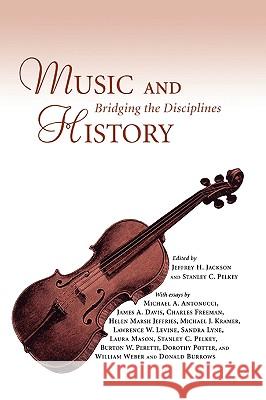Music and History: Bridging the Disciplines » książka
Music and History: Bridging the Disciplines
ISBN-13: 9781604735208 / Angielski / Miękka / 2005 / 256 str.
This book begins with a simple question: Why haven't historians and musicologists been talking to one another? Historians frequently look to all aspects of human activity, including music, in order to better understand the past. Musicologists inquire into the social, cultural, and historical contexts of musical works and musical practices to develop theories about the meanings of compositions and the significance of musical creation. Both disciplines examine how people represent their experiences. This collection of original essays, the first of its kind, argues that the conversation between scholars in the two fields can become richer and more mutually informing. The volume features an eloquent personal essay by historian Lawrence W. Levine, whose work has inspired a whole generation of scholars working on African American music in American history. The first six essays address widely different aspects of musical culture and history ranging from women and popular song during the French Revolution to nineteenth-century music publishing in Philadelphia, Pennsylvania. Two additional essays by scholars outside of musicology and history represent a new kind of disciplinary bridging by using the methods of cultural studies to look at cross-dressing in nineteenth- and early twentieth-century opera and blues responses to lynching in the New South. The last four essays offer models for collaborative, multidisciplinary research with a special emphasis on popular music. Jeffrey H. Jackson, Memphis, Tennessee, is assistant professor of history at Rhodes College. He is the author of Making Jazz French: Music and Modern Life in Interwar Paris. Stanley C. Pelkey, Portage, Michigan, is assistant professor of music at Western Michigan University. He is a member of the College Music Society, and his work has appeared in music-related periodicals.











